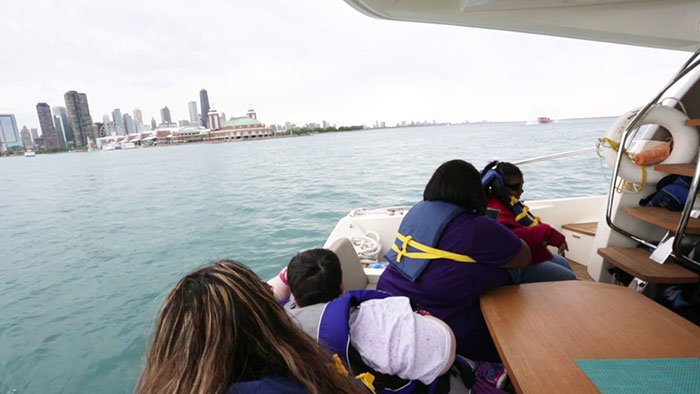Special Needs
 Modern cruise ships have made significant improvements to cater better to special needs and handicapped passengers, aiming to provide a comfortable and inclusive experience for all guests. Here are some ways in which cruise ships accommodate special needs:
Modern cruise ships have made significant improvements to cater better to special needs and handicapped passengers, aiming to provide a comfortable and inclusive experience for all guests. Here are some ways in which cruise ships accommodate special needs:
- Accessible Staterooms: Cruise ships now offer a range of accessible staterooms designed to accommodate passengers with mobility challenges. These staterooms typically feature wider doorways, spacious bathrooms with roll-in showers, grab bars, lower sinks, and other accessibility features. They are designed to ensure ease of movement and independence for passengers with disabilities.
- Wheelchair Accessibility: Cruise ships have improved wheelchair accessibility throughout the ship. This includes wider corridors, ramps, and elevator access to all decks, allowing passengers using wheelchairs or mobility scooters to navigate the ship comfortably. Additionally, many ships have designated wheelchair seating areas in theaters, restaurants, and other public spaces.
- Sign Language Interpreters: Some cruise lines provide sign language interpreters for guests with hearing impairments. These interpreters assist during safety drills, entertainment shows, and other onboard activities, ensuring effective communication and an inclusive experience.
- Visual and Hearing Impairment Accommodations: Cruise ships may offer accommodations for passengers with visual or hearing impairments. This can include Braille signage, closed captioning on TV screens, amplified telephones, visual alert systems for doorbells and alarms, and other assistive technologies to enhance accessibility.
- Medical Facilities and Services: Cruise ships typically have medical facilities staffed with trained medical professionals to assist passengers with medical needs. These facilities are equipped to handle common health issues and emergencies. It is advisable for passengers with specific medical requirements to inform the cruise line in advance to ensure appropriate accommodations and support.
- Dietary Restrictions and Allergies: Cruise ships now provide a variety of dietary options to accommodate passengers with food allergies, intolerances, or special dietary requirements. They offer menus that cater to various dietary needs, including gluten-free, vegetarian, vegan, and more. Guests can often communicate their dietary preferences in advance to ensure proper arrangements are made.
- Personal Assistance and Services: Cruise lines offer personal assistance and services to cater to individual needs. This can include wheelchair or mobility scooter rentals, priority embarkation and disembarkation, and assistance with embarkation, disembarkation, and shore excursions. Passengers can often request specific accommodations or services at the time of booking or by contacting the cruise line in advance.
It's important to note that specific accommodations and services may vary among cruise lines and ships. It's advisable for passengers with special needs to contact the cruise line directly to discuss their specific requirements and ensure a smooth and enjoyable experience onboard.